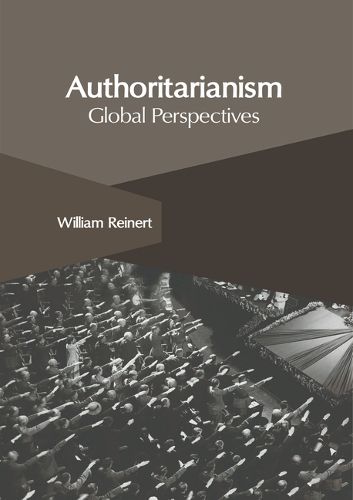Readings Newsletter
Become a Readings Member to make your shopping experience even easier.
Sign in or sign up for free!
You’re not far away from qualifying for FREE standard shipping within Australia
You’ve qualified for FREE standard shipping within Australia
The cart is loading…






Authoritarianism is a form of governance characterized by centralized power, limited political freedoms and strict control over society. In authoritarian regimes, a single leader or a small group holds uncontrolled authority often through force, censorship and suppression of dissent. These governments prioritize stability and order over individual liberties and democratic principles. Citizens have little to no say in the decision-making process and political opposition is often marginalized or repressed. Authoritarian regimes frequently employ propaganda, overpowering independent media, civil society and surveillance to maintain control. While authoritarianism can lead to short-term stability and efficiency, it often comes at the cost of human rights violations, corruption and economic recession. Transitioning away from authoritarianism can be challenging, as established power structures resist change. However, movements advocating for democracy and human rights continue to challenge authoritarian rule worldwide, for freedom and accountability. This book presents the complex subject of authoritarianism in the most comprehensible and easy to understand language. The topics included in this book on movements advocating for democracy and human rights are of utmost significance and bound to provide incredible insights to readers. It is meant for students who are looking for an elaborate reference text on authoritarian regimes.
$9.00 standard shipping within Australia
FREE standard shipping within Australia for orders over $100.00
Express & International shipping calculated at checkout
Authoritarianism is a form of governance characterized by centralized power, limited political freedoms and strict control over society. In authoritarian regimes, a single leader or a small group holds uncontrolled authority often through force, censorship and suppression of dissent. These governments prioritize stability and order over individual liberties and democratic principles. Citizens have little to no say in the decision-making process and political opposition is often marginalized or repressed. Authoritarian regimes frequently employ propaganda, overpowering independent media, civil society and surveillance to maintain control. While authoritarianism can lead to short-term stability and efficiency, it often comes at the cost of human rights violations, corruption and economic recession. Transitioning away from authoritarianism can be challenging, as established power structures resist change. However, movements advocating for democracy and human rights continue to challenge authoritarian rule worldwide, for freedom and accountability. This book presents the complex subject of authoritarianism in the most comprehensible and easy to understand language. The topics included in this book on movements advocating for democracy and human rights are of utmost significance and bound to provide incredible insights to readers. It is meant for students who are looking for an elaborate reference text on authoritarian regimes.